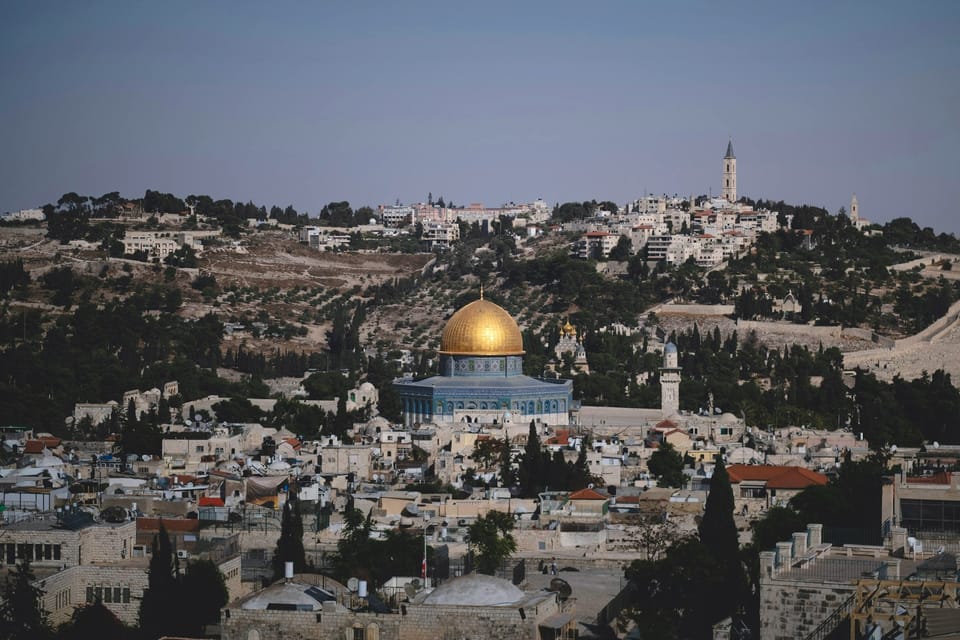Are We Allowed to Go Up on Any Parts of Har HaBayis Before Moshiach Comes?

The question of ascending Har HaBayis (the Temple Mount) is one of the most serious halachic and hashkafic debates in our times. The Torah approach—especially in the Charedi world—is one of extreme caution, reverence, and fear of violating kedushas haMakom (the sanctity of the place where the Shechinah rests).
The overwhelming majority of Gedolei Yisrael—across all sectors of Charedi Jewry, including Litvish, Chassidish, and Sefardi poskim—have ruled that we may not ascend Har HaBayis today, under any circumstances, until Moshiach comes and the halachic clarity and purity required to enter the area are restored.
Let us explain why.
1. The Torah Prohibition Against Entering the Mikdash While Tamei
The Torah states explicitly:
וַיְשַׁלַּח אֶת־הַטְּמֵאִים מִן־הַמַּחֲנֶה “And He shall send the impure ones out from the camp” — Bamidbar 5:2
Chazal explain that the Machaneh Shechinah—the innermost sanctified area, which includes Har HaBayis—is forbidden for someone who is tamei meis (impure due to contact with a corpse). Since we no longer have the ashes of the Parah Adumah to purify ourselves, every Jew today is considered tamei meis, and therefore forbidden to enter the area of the Beis HaMikdash.
The punishment for such entry is kareis—spiritual excision, one of the most severe punishments in the Torah:
הַנֶּפֶשׁ אֲשֶׁר תִּקְרַב וְלֹא יִטְהָר וְנִכְרְתָה הַנֶּפֶשׁ הַהִוא “The soul that approaches [the sanctuary] without purifying himself will be cut off.” — Bamidbar 19:13
This is not symbolic. It is a real Torah prohibition with severe consequences.
2. We Do Not Know the Exact Boundaries
Even those who argue that some peripheral parts of Har HaBayis may be permitted for entry with proper preparation acknowledge one critical fact: we do not know exactly where the actual Beis HaMikdash stood.
Rav Chaim Kanievsky zt”l stated:
אסור לעלות להר הבית, כי אין לנו בירור מדויק איפה בדיוק היה מקום המקדש. “It is forbidden to go up to Har HaBayis because we do not have precise clarity where exactly the Beis HaMikdash stood.”
In halacha, safek (doubt) in a matter of kareis is treated with the utmost stringency. Therefore, even if someone immerses in a mikvah and avoids the inner areas according to one opinion, there is no guarantee they are not entering forbidden zones according to other opinions.
3. Almost All Gedolei HaDor Have Opposed It
Virtually every major posek of the last century prohibited going up to Har HaBayis:
- Rav Avraham Yeshaya Karelitz (Chazon Ish)
- Rav Yosef Shalom Elyashiv
- Rav Shlomo Zalman Auerbach
- Rav Chaim Kanievsky
- Rav Nissim Karelitz
- Rav Moshe Feinstein
- Rav Ovadia Yosef
- The Steipler Gaon
- Rebbe Yisroel of Vizhnitz
- The Lubavitcher Rebbe
- The Satmar Rebbe
- Rav Shach
- Rav Michel Yehuda Lefkowitz
- Chacham Ben Zion Abba Shaul
All of them, regardless of differences in hashkafah, said the same thing: stay away from Har HaBayis until the Beis HaMikdash is rebuilt and we have a Sanhedrin and Parah Adumah.
Chacham Ovadia Yosef zt”l wrote:
אפילו אם יש מקום שמותר לפי כמה דעות, הרי הכלל בידינו: ספק כרת – לחומרא. ומי יכניס עצמו לספק עונש כרת?! “Even if there are areas permitted according to some opinions, we have a rule: A doubt involving kareis must be treated strictly. Who would put himself in a situation of possible kareis?!” — Yabia Omer, Vol. 5, Yoreh Deah 26 [1]
4. Kiddushah Remains Even Without the Mikdash
Some mistakenly assume that since the Beis HaMikdash is not standing, the prohibition no longer applies. But the Rambam writes:
קדושה ראשונה קידשה לשעתה וקידשה לעתיד לבוא. “The first sanctification [by Shlomo HaMelech] sanctified [the Mikdash and Yerushalayim] for that time and for all future times.” — Rambam, Hilchos Beis HaBechirah 6:14 [2]
This means the sanctity of Har HaBayis remains forever, even in destruction. The Shechinah never left.
5. Fear of Heaven Is Greater Than Political Statements
Some people ascend the Mount today to express sovereignty or national pride. But Gedolei Yisrael teach that kavod Shamayim (honor of Heaven) must outweigh all nationalistic or political symbolism.
Rav Moshe Feinstein zt”l wrote:
כבוד המקום קדוש יותר מכל סמל של מדינה או עם. ולא ישיאנו היצר לומר שזה קידוש השם – אלא חילול הקודש ממש. “The honor of the holy place is greater than any symbol of state or people. Let not the yetzer hara convince us this is a sanctification of Hashem’s Name—it is a desecration of holiness itself.” — Igros Moshe, Orach Chaim vol. 1, siman 39 [3]
Conclusion: Wait with Awe, Fear, and Yearning
The Torah position is clear: Until we have full halachic clarity, the Parah Adumah, a Sanhedrin, and the rebuilding of the Beis HaMikdash under the guidance of Moshiach — we must not ascend Har HaBayis.
We don’t protest out of weakness. We refrain out of awe.
The very fact that we treat Har HaBayis as off limits is itself a powerful expression of emunah, yiras Shamayim, and hope that soon, Hashem will return His Shechinah to Zion.
Sources
- Chacham Ovadia Yosef, Yabia Omer, Vol. 5, Yoreh Deah 26
- Rambam, Hilchos Beis HaBechirah 6:14
- Rav Moshe Feinstein, Igros Moshe, Orach Chaim 1:39
